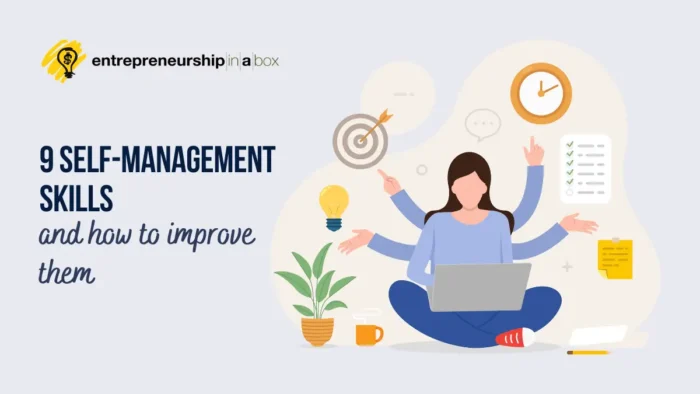Mark Zukerberg and Steve jobs. Sheryl Sandberg and Larry Summer. Oprah Winfrey and Barbara Walters. Bill Gates and Warren Buffet. Those names sound relatable, right? This is not another list of folks who have climbed the ladder of success in their businesses.
They are unique pairs of people connected on the ground of mentoring.
Steve Jobs was Mark Zuckerberg’s mentor. Barbara Walters mentored Oprah Winfrey.
The Facebook/Instagram CEO publicly thanked Steve jobs for not only being a mentor but also a friend.
Winfrey, in one of her interviews, said “If there was no Walter, there wouldn’t be me.”
These are a few high profiled examples of how a business mentor can transform a life.
What many businesses failed to realize is that mentoring goes far beyond two people coming together, boss and staff alike, and setting up a question and answer section.
A mentoring program takes quality investment and solid interest (and expertise) in connecting the dots between the top and lower-level staff – in a more organized way so that every company member can pair up with a partner that they can open up their world too.
It’s surprising to see that many businesses are not taking their mentorship program seriously.
As a small business owner, the right mentoring can scale your overall business prowess.
Lately, the demand for mentoring has exploded, most especially among millennial business owners ready to key in on value provision.
Workplace processes have changed and the growth responsibilities no longer rest on one person’s shoulder (usually the employer). It’s about developing ways to access insight and experience from a true professional when you need it.
Why Business Mentoring Programs Are The Real Deal?
Business owners that adopt a mentoring culture experience a more engaged workforce. With many workers lagging behind in workforce commitment, creating an opportunity for them to speak to a professional with mentorship expertise may save you thousands (if not millions) of dollars on onboarding and retraining costs.
Today, it’s important to create an opportunity where experts can impact their knowledge into the workforce by developing professional mentoring relationships.
This is exceptionally critical in today’s world where mentoring is creating a more solid experience. Instead of the ancient, traditional process of an old statesman giving professional advice to different protege, mentoring has skyrocketed into an art of idea exchange and knowledge broadening.
Today, mentors are beginning to harness the benefits of the knowledge impacted during the program. It is beyond giving out. Whether it’s an extended knowledge of a different culture, improving leadership and communication skill or widening network outreach, mentors now find the overall experience just as productive as the mentee.
Giving advice or sharing helpful tips also helps the mentor broaden their knowledge and relearn.
Mentoring programs allow people at the losing side of the streak (based on race, disabilities, gender, etc) that might not be opportune to advance quickly, a chance to learn how to improve and to be valuable.
For example, we noticed that a mentorship program helps women gain higher work satisfaction and happiness.
What Are The Processes Involved?
First, you need to think about how mentoring can fit into the core cultural model of your business.
Back then, mentoring was approached through the hierarchical process where one expert impacts knowledge in a naive inexperienced protege. In short, it is a process specially dedicated to those with a higher potential for success.
Not only is this outdated but also not scalable. However, if we view mentoring from the flat line structure, then not only is it scalable and accessible but also relevant.
Thanks to the fact that businesses now widen the talent pool, allowing workers to connect with a mentor based on their current needs, instead of focusing on years of experience as basic criteria for connection.
The truth is, the right mentor program encourages better engagements and builds more happy employees.
Many employees described the importance of a mentor program as “an unmatched value”.
As a business owner, setting up a mentorship program requires effective thought and planning processes. The following tips will help you get started:
1. Make Sure Everyone Understands The Value Behind The Program
From the senior to the lowest ranking staff, everyone must understand the underlying value of mentoring to make it work. By mentoring people from varying levels and departments, a mentor can impact knowledge onto everyone – whether it’s to acquire multiple skills to boost their value or gain more knowledge for better role clarity.
2. Set Up Your Framework
Make sure you have all the parameters of the program set up before getting started.
Once the buy-in from senior workers is ready, spend some time figuring out the whole concept, such as the goal of the program and parameters for measuring success.
3. Pair The Right Mentor And Mentee
This is a really critical step that usually raises quite a lot of issues.
Match mentors and mentees based on the mentee’s career goal and what they’re looking to learn.
You can manually match the mentor and mentee based on skills, background, interest, and more.
However, make sure that you’re not tempted to be biased with this process. To avoid any form of bias, you can use software for your matching software.
The right match will improve the outcome of the session and boost satisfaction and general success of the mentoring program.
4. Monitor
Always monitor the ongoing success of the program. Create a system that keeps track of the communication and engagement process to identify what’s lacking in the process. You can create a survey plan to track satisfaction rating.
Here are a few things to measure:
- Did your business hit its KPI with the mentoring program?
- Did the program help the mentee achieve their goals?
- How did the mentoring program impact them?
5. Do not force it
Mentoring is about a mutually beneficial relationship between the mentor and the business owner. When that stops being the case then it’s time for both parties to acknowledge it and stop the relationship. That may happen within months or after years of a successful relationship.
Engaging a business mentor can be one of the most rewarding decisions for a business owner to accelerate their level of success and freedom from the day to day pressures of owning your own business.





